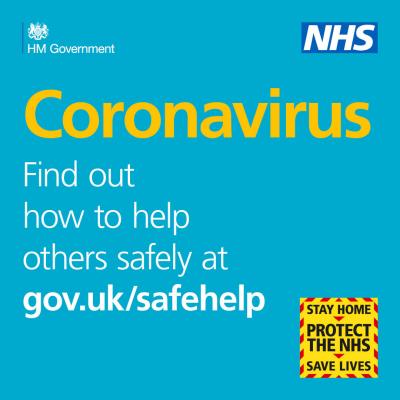While everyone must follow the Government's social distancing guidelines, there are steps that people who are deemed fit and well can take to support more vulnerable friends, neighbours and relatives at this time – from picking up essential supplies to supporting their mental health and wellbeing.
The Government has compiled a guide available at Coronavirus: How to help safely. It covers whether or not you can help, who you can help, how you can help them safely, and the ways in which you can help them. There's also specific advice around what to do if you are worried for someone's health, how to stay safe when accepting help from others, and about volunteering and becoming an NHS volunteer responder.
Councillor Jasbir Jaspal, the City of Wolverhampton Council's Cabinet Member for Public Health and Wellbeing, said: “The single most important action we can all take in fighting coronavirus is to stay at home in order to protect the NHS and save lives. But at the same time, we all naturally want to do as much as we can to help others who may be particularly vulnerable.
“While we must all follow the Government's social distancing rules to help prevent the spread of coronavirus, there are still things that those of us who are fit and well can do to support more vulnerable friends, relatives and neighbours.”
Councillor Linda Leach, Cabinet Member for Adult Services, added: "So many people in our city are vulnerable because of coronavirus, and we know just how worrying a time this is for them all.
"They need as much help and support as people are able to safely give them at this time – whether that is picking up essential supplies for them, or simply checking in on them either over the phone or through a video call to make sure they are okay."
You can only provide support to others if you:
- are well and have no symptoms of coronavirus like a new, continuous cough or high temperature and nobody in your household does
- you are under 70
- you aren’t pregnant
- you do not have any long term health conditions that make you vulnerable to coronavirus
You can help your friends, family and neighbours. But you should not go inside their homes as this could put you at risk of infection, or risk spreading it to others.
If you are picking up essential items for others, such as food or medicine, get them when you are doing your own shopping to limit the amount of time you are out. Remember to follow the social distancing guidelines and stay 2 metres or 6 feet away from anyone who is not a member of your own household, including when you are in shops.
Keep a safe distance when leaving any items on the person’s doorstep, and make sure that they have collected any medication before leaving. You could also help those who aren’t as familiar with online shopping by placing an order for them or by talking them through the process over the phone.
Staying at home for a long time can be a lonely experience and may impact on people’s wellbeing. You can help out by regularly checking in over the phone or by video chat. You can also share ideas with them about how they can keep mentally and physically active, such as swapping recipes or suggestions of good books or films to read and watch. If people are well enough, encourage them to do some light exercise and keep active around the home, perhaps using an online exercise class.
The latest information and guidance around coronavirus is available at GOV.UK and on the council’s own coronavirus pages at Coronavirus advice and information. There’s lots of advice on how people can protect themselves and their families from coronavirus from the NHS at Advice for everyone – Coronavirus (COVID-19).
The council’s Stay Safe, Be Kind campaign offers clear and simple advice about how people can help themselves, and how they can support others who may be particularly vulnerable at this time. For more information, please visit Stay Safe, Be Kind.
